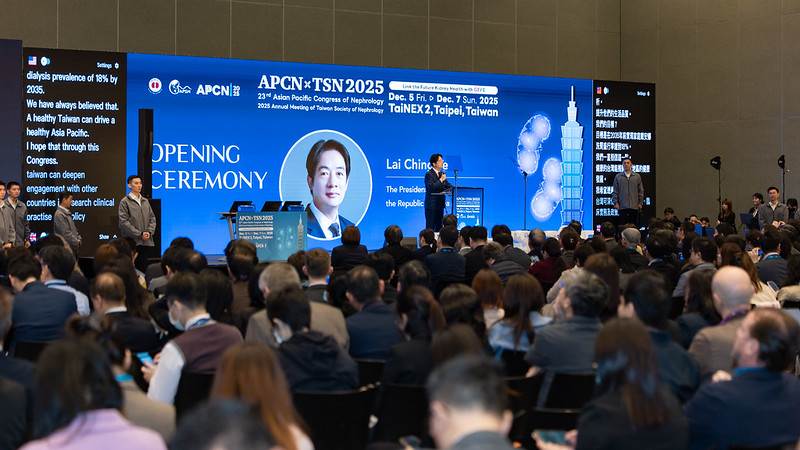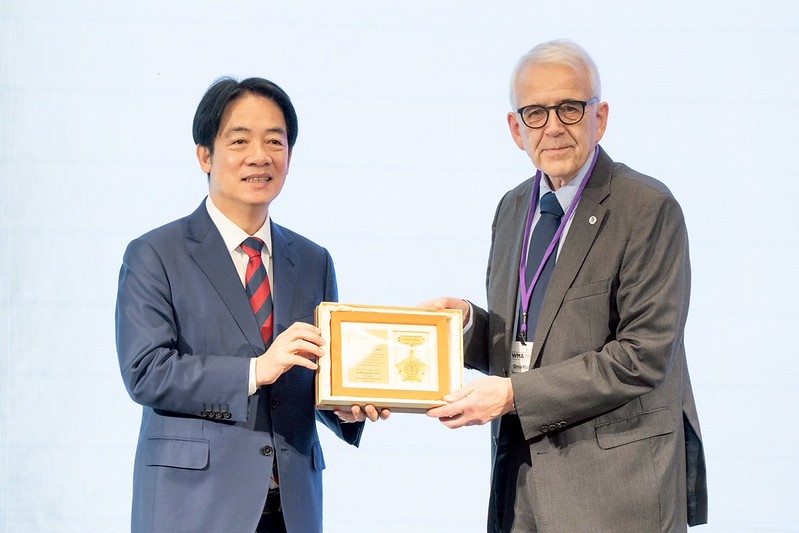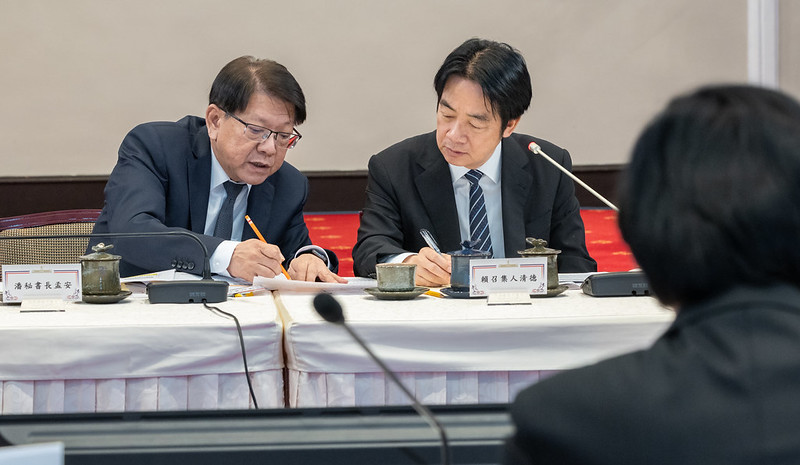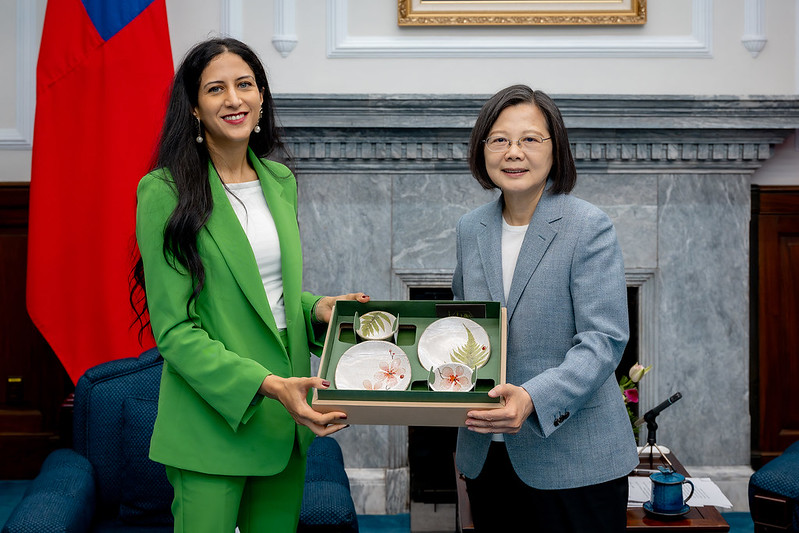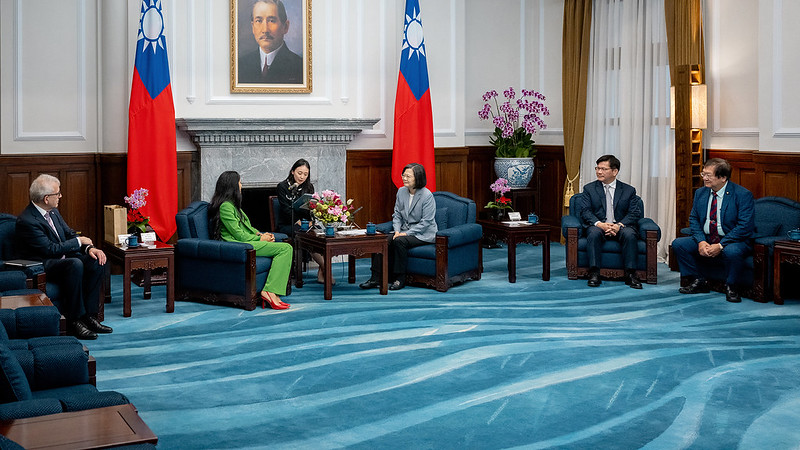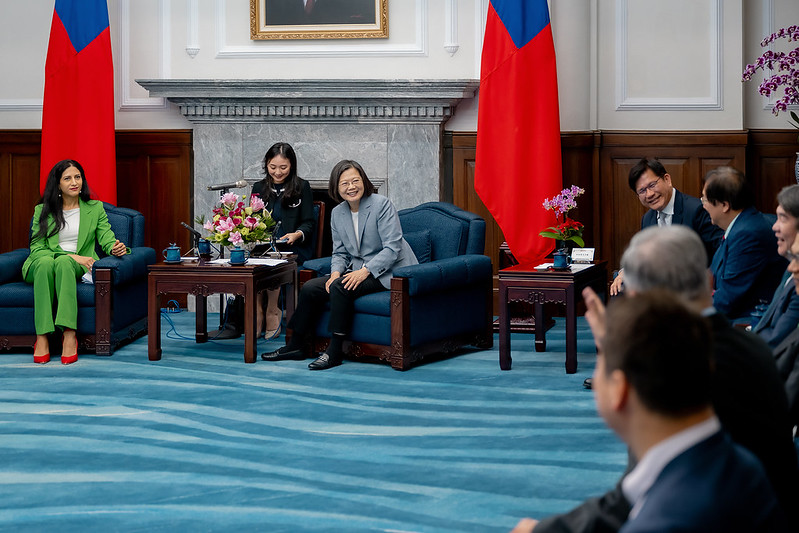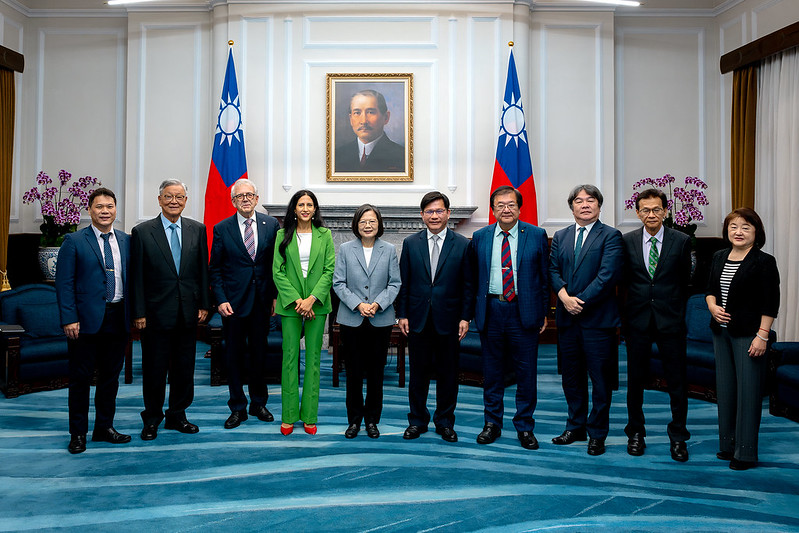News & activities
 News releases
News releases
On the morning of December 11, President Tsai Ing-wen met with a delegation led by World Medical Association (WMA) President Dr. Lujain Alqodmani. In remarks, President Tsai thanked the WMA for its many years of speaking up for Taiwan on the international stage. President Tsai emphasized that we will continue to show how Taiwan can help by actively contributing to global health security. The president expressed her belief that with Taiwan's achievements and capabilities in medicine and public health, we can join forces with many more countries to optimize the medical environment and make a more positive impact on the health of humankind.
A translation of President Tsai's remarks follows:
I extend a warm welcome to President Alqodmani, who is visiting Taiwan once again. I am also glad to see WMA Secretary General Dr. Otmar Kloiber. Both of you are well acquainted with Taiwan and are our close friends. You have demonstrated your support through concrete actions. I would like to express my deepest thanks.
The WMA is the largest international NGO that represents physicians. You staunchly defend health security and the rights and interests of physicians around the world with professionality and impartiality. I want to take this opportunity to thank the WMA on behalf of the Taiwanese people for its longstanding support of our participation in the World Health Organization (WHO) and World Health Assembly (WHA). This May, for example, our WHA action team collaborated with the WMA to hold a forum on emergency medicine in Geneva in the lead-up to the WHA.
We will continue to show how Taiwan can help by actively contributing to global health security. During the COVID-19 pandemic, Taiwan demonstrated the resilience of its public healthcare system and shared its experiences in combating the pandemic with the world. We have also shared our medical services and construction capabilities, two areas in which we excel, with our diplomatic allies to help enrich the lives of their people and enhance the quality and environment of healthcare.
We hope that President Alqodmani and Secretary General Kloiber will continue to speak up for Taiwan on the international stage. I believe that with Taiwan's achievements and capabilities in medicine and public health, we can join forces with many more countries to optimize the medical environment. Together, we can make a more positive impact on the health of humankind.
I also want to thank the Taiwan Medical Association (TMA) for serving as a bridge of communication between the government and the medical community, which helps us in implementing many of our policies. We look forward to the TMA further expanding exchanges and cooperation between the medical and international communities.
I am looking forward to exchanging ideas with you today. Your visit to Taiwan will no doubt lay the groundwork for further cooperation. I wish you all a successful trip.
